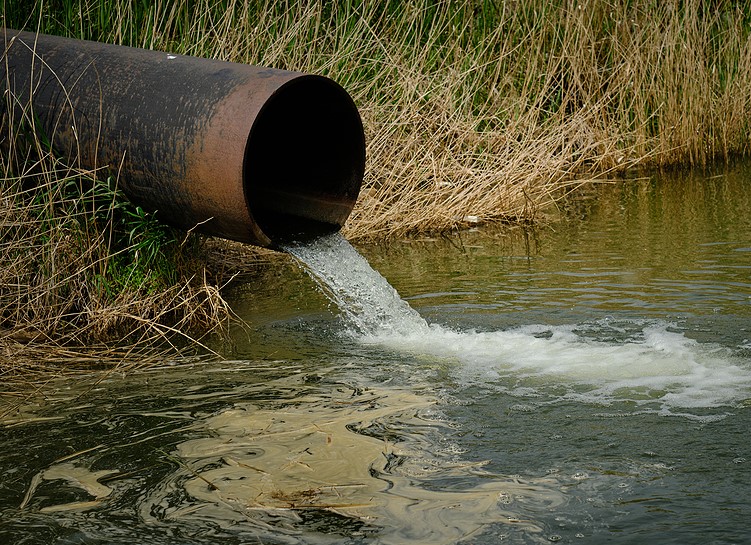News
Govt Publishes Sewage Discharge Reduction Plan
At the start of the year, the Environmental Audit Committee issued a warning that just 14 per cent of rivers in England met good ecological status, polluted by the likes of sewage, agriculture, roads and single-use plastic… all of which were converging to create a dangerous chemical cocktail flowing through the nation’s waterways.
Sewage discharges in particular have hit the headlines hard as the months have gone on and even just this week it was revealed that approximately 90 beaches around the country suffered sewage pollution this summer.
According to Rachel Wyatt, water quality policy and advocacy manager with the Marine Conservation Society, throughout the whole of 2021 untreated sewage was spilt on 372,533 separate occasions… which she described as “staggering”, iNews reports.
Bacteria contained in sewage and animal slurry can cause sickness, while a buildup of nutrients like nitrogen and phosphorus (contained in sewage and animal waste) can lead to the development of algal blooms. This has an impact on local biodiversity, reducing oxygen levels in the water and suffocating fish, plants and other species.
The Environmental Audit Committee has found that some 36 per cent of water bodies in the country are being prevented from achieving good ecological status because of wastewater from sewage treatment works and sewer overflows.
The extent of sewage discharge was also of great concern, as was misreporting and large spills by water suppliers. Citizen science analysis of data from water companies indicates that the number of discharges may well be far higher than was reported to the Environment Agency.
Given that concerns were raised at the start of the year and we’re now nearing the end of 2022, without much apparent change in the situation, it is perhaps welcome news from the government that a storm overflow discharge reduction plan has just been published.
This sets out robust new targets for water companies that will protect both people and the environment, with the biggest infrastructure programme in supplier history to be delivered as a result.
For example, by 2035, water companies will need to improve all storm overflows that discharge into or near designated bathing water sites, as well as improving 75 per cent of overflows that discharge in high priority nature areas.
And by 2050, this will be applied to all remaining overflows covered by these targets, no matter where they’re located.
The overflows currently causing the most harm will be tackled first so that an immediate impact can be made. Water suppliers will also have to consider nature-based solutions in their planning.
Commenting on the news, water minister Steve Double said: “We are the first government to take action to tackle sewage overflows. We have been clear that water companies’ reliance on overflows is unacceptable and they must significantly reduce how much sewage they discharge as a priority.
“This is on top of ambitious action we have already taken including consulting on targets to improve water quality which will act as a powerful tool to deliver cleaner water, pushing all water companies to go further and faster to fix overflows.”
In addition, the Environment Agency has driven up monitoring and transparency significantly from water companies and will take swift action to eliminate harmful sewage discharges and better protect the environment, holding firms to account whenever they fall below the minimum standards.
However, the plan has not been well received in some quarters, with conservationist charity WildFish calling for its immediate withdrawal. According to the Guardian, the plan is now facing a judicial review on the grounds that it is unlawful, with the charity saying that the strategy will allow overflows to continue discharging raw sewage for the next 28 years.
In some high-priority areas, the plan would also allow discharges to continue causing serious ecological impacts for the next 13 years.
Chief executive of the charity Nick Measham explained that their lawyers have concluded that the plan is unlawful “on many counts”, adding that it either allows or encourages continued breaches of environmental laws by water companies, as well as Ofwat and even “the secretary of state himself, for many years to come, in some cases until 2050”.
Do you want to switch water supplier? Get in touch with the team here at H2o Building Services to find out more about what’s involved.
